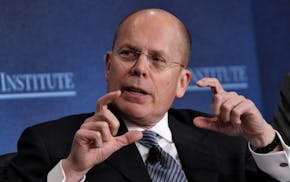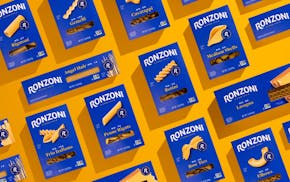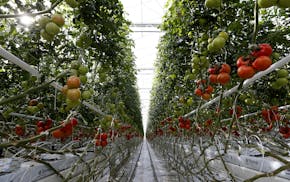Just three words from the Brewers Association were enough to tank what had been a booming business for a local nonalcoholic beer supplier.
Ben Jordan's company, ABV Technology, had been in high demand from Minnesota breweries eager to add NA options to their tap lists. More than half of Minnesota's taprooms had a zero-proof brew to order at the start of this year. But the association's decree — that without pasteurization, brewers were putting drinkers at risk — reversed that momentum.
"My sales dropped 30 percent," Jordan said.
While ABV quickly came up with a more affordable pasteurization method for NA kegs and cans right on the pallet that helped sales recover in recent months, Jordan knows there are more challenges to push NA beyond the "tip of the iceberg."
"We're talking about the fastest-growing product in a market when breweries need growth," Jordan said.
As beer consumption declines amid a generational shift in attitudes toward alcohol, Minnesota has become a hub for craft NA beer. Since ABV came online in 2017 and found a way to bring more flavor to a long-derided segment of the beer industry, it's now expected that local breweries stock something for those not imbibing.
Today, NA options remain a tiny fraction of sales for most Minnesota breweries, but they bring people in the door amid dwindling thirst for regular beer.
"The taproom is extremely important to us and is just over half our business," said Mike Corneille, president and co-founder of Pryes Brewing in Minneapolis. "The main reason we wanted to have an NA option is for people who wanted to enjoy the taproom experience without drinking."
Pryes sells just one of its nonalcoholic Bohemian Blondes for every 100 pints, which tracks with the national average but remains far below the level of NA adoption overseas. Corneille said it's still niche, with a limited reach, but it's a must-have offering.
"People really appreciate that we have it," Corneille said. "We get lots of calls and questions online asking if we have any NA options."
Nonalcoholic beer sales have surged nationally for several consecutive years. Since July 2023, sales have jumped nearly 30% to $420 million, according to Circana, a Chicago-based market research firm.
That's just at retailers. NA sales at bars and restaurants are up 33% through the past year, according to data firm CGA.
That growth stems from a fairly small starting point, considering the total U.S. beer market was $116 billion last year. But the beer market overall has struggled to grow after initially recovering from pandemic disruption.
In restaurants and bars, beer sales are down 3%. Overall, sales have risen slightly, but that's almost entirely because of price increases: The volume of beer produced last year dropped 5%, according to the Brewers Association.
In the face of that trend, having nonalcoholic alternatives at breweries — whether NA beer, kombucha, THC or soda — is essential to keeping taprooms financially viable.
"Everyone deserves a bar stool," said Bob Galligan, director of industry relations at the Minnesota Craft Brewers Guild. "The nation is going through a loneliness epidemic and the more we can get folks out into social situations and make sure everyone has something to drink, the better."
Jordan said fast-growing national brands like Athletic and Heineken have helped the category gain more visibility at liquor stores and bars, but it's "just the beginning" of the future he sees for nonalcoholic beer.
"If we want the same thing to happen in NA that happened in craft beer in the early 2000s," he said of rapid growth and mainstream adoption, "craft breweries are the answer."
Minnesota's unique THC beverage market has been a saving grace for many brewers serving fewer drinkers. That trend might make the future of NA beer here a little buzzier, like the THC-infused Tetra Highbräu from Bauhaus in Minneapolis.
"In some sense, anyone can take water and THC, carbonate it and sell it," Jordan said. "What we want is THC beverages to become craft beverages that bring the unique flavors of beer."

UnitedHealth shareholders give tepid support to $60M in stock-based pay for new CEO
Target recalls more employee groups to downtown Minneapolis headquarters

Ronzoni pasta-maker coming to Lakeville in $880 million Post acquisition

$200M acquisition by Minneapolis company will help it aid other firms make deals

